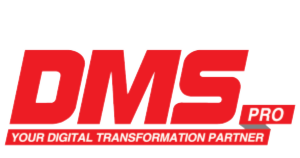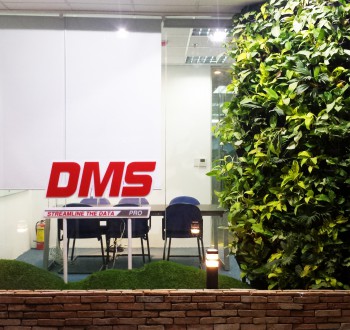- 01-10-2024
- Category: Quản Trị Doanh Nghiệp
Order management in the supply chain has undergone significant changes, driven by modern technology and increasing market demands. Current trends in order management not only improve efficiency but also enhance customer experience and optimize operational processes. Below are some of the prominent trends in modern order management.
1. Digitalization and Process Automation
Traditional order management, with manual handling, has shown many limitations, such as time consumption and susceptibility to errors. Therefore, businesses are shifting towards automating processes by using software systems like SaaS DMS. Automation not only speeds up processing time but also minimizes human errors. From single data entry to automatic order updates, this process ensures greater accuracy and efficiency compared to traditional methods.

2. Real-time Order Tracking
Technological advancements allow businesses to track the status of orders in real-time, from the moment they are placed until delivery. This not only gives businesses better control over the entire order management process but also provides customers with a more transparent experience. Customers can directly track the order processing and delivery stages without needing assistance from customer service teams.

3. Multi-platform Management System Integration
In the modern supply chain, integrating order management systems with other systems such as CRM (Customer Relationship Management), ERP (Enterprise Resource Planning), and warehouse management is crucial. This integration ensures that data on inventory, products, and order status is updated instantly. Moreover, product and pricing information can be synchronized across systems, making it easier for customers to make purchasing decisions.

4. Optimizing Exception Handling Processes
Not all orders run smoothly. Handling exceptions (orders with issues like wrong delivery dates, out-of-stock items, or changing requirements) is an essential part of modern order management. With advanced management systems, these cases can be detected and resolved quickly, minimizing their impact on the supply chain and protecting customer experience.

5. Flexibility in Responding to Market Changes
The modern market demands businesses to respond quickly and flexibly to customer needs. Modern order management solutions, such as SaaS OMS, help businesses swiftly adapt to market fluctuations, from optimizing order processes to adjusting supply and shipping according to demand. This not only helps businesses maintain their competitive edge but also increases customer satisfaction.

6. Using Real-time Data for Forecasting and Planning
Modern technology allows businesses to collect and analyze order data in real-time, enabling more accurate forecasting of consumption trends and market demands. This helps businesses plan production and distribution more efficiently, ensuring sufficient inventory to meet demand without causing wastage.

OMS – A Next-generation SaaS DMS Solution for All Order Management Trends and Needs
Born in line with the omnichannel trend, the OMS (Order Management System) by DMSpro stands out as a next-generation SaaS DMS solution, designed to meet all modern challenges and requirements in order management. With high integration capabilities, flexible processing, and optimization of business processes, OMS helps businesses manage thousands of orders daily while enhancing overall operational performance. The combination of DMS and SaaS creates a powerful system, enabling businesses to easily meet fluctuating market demands while providing comprehensive management across departments. This marks a significant leap, helping businesses not only keep pace but also lead the revolution in supply chain management.
 Your Distribution Management Solutions
Your Distribution Management Solutions

